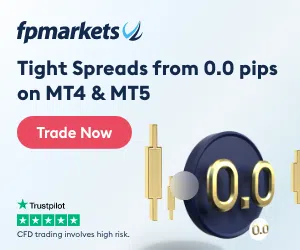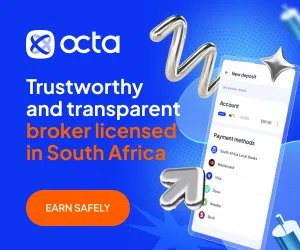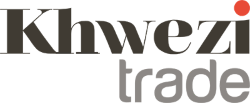For over a decade, FxScouts.co.za has been reviewing forex brokers and provided in-depth analyses. Our extensive research and unique testing methodology ensures that all broker reviews are accurate and fair with hundreds of thousands of data points generated annually. Since 2012, we’ve tested over 180 brokers across global and South African markets. Our team of professionals are frequently cited in global and regional media, shaping market conversations and trends.
-
Best Forex Brokers
Our top-rated Forex brokers
-
Brokers for Beginners
Start trading here
-
Forex Demo Accounts
Learn to trade with no risk
-
ZAR Trading Accounts
Save on conversion fees
-
Lowest Spread Brokers
Raw spreads & low commissions
-
ECN Brokers
Trade with Direct Market Access
-
No-deposit Bonuses
Live trading with no deposit
-
High Leverage Brokers
Extend your buying power
-
Islamic Account Brokers
Best accounts for Muslim traders
-
Market Maker Brokers
Fixed spreads & instant execution
-
All Trading Platforms
Find a platform that works for you
-
TradingView Brokers
The top TradingView brokers
-
MetaTrader4 Brokers
The top MT4 brokers in SA
-
MetaTrader5 Brokers
The top MT5 brokers in SA
-
cTrader Brokers
The top cTrader brokers in SA
-
Forex Trading Apps
Trade on the go from your phone
-
Copy Trading Brokers
Copy professional traders
75-90% of retail traders lose money trading Forex and CFDs. You should consider whether you understand how CFDs and leveraged trading work and if you can afford the high risk of losing your money. We may receive compensation when you click on links to products we review. Please read our advertising disclosure. By using this website, you agree to our Terms of Service.
The best Forex demo accounts in SA
Broker | Broker Score | Official Site | Beginner Course | Unlimited Demo | Downloadable Ebook | Beginner Videos | Economic Calendar | Experienced Course | Advanced Videos | Webinars | Min. Deposit | Platforms | Regulated | Support Hours | Compare |
|---|---|---|---|---|---|---|---|---|---|---|---|---|---|---|---|
 | 4.40 /5 Read Review | Visit Broker > 79% of retail CFD accounts lose money | Yes | Yes | Yes | Yes | Yes | No | No | Yes | AUD 100 | MT4, MT5, cTrader, IRESS |      | 24/5 | |
4.37 /5 Read Review | Visit Broker > 67.65% of retail CFD accounts lose money | Yes | Yes | No | Yes | Yes | No | No | Yes | USD 25 | MT4, MT5, OctaTrader |    | 24/5 | ||
 | 4.59 /5 Read Review | Visit Broker > 76% of retail CFD accounts lose money | Yes | No | Yes | Yes | Yes | Yes | No | Yes | ZAR 1900 | MT4, MT5, Avatrade Social, AvaOptions |        | 24/5 | |
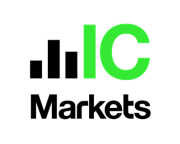 | 4.46 /5 Read Review | Visit Broker > 70.81% of retail CFD accounts lose money | Yes | No | No | No | Yes | Yes | No | Yes | USD 200 | MT4, MT5, cTrader, TradingView |     | 24/7 | |
 | 4.61 /5 Read Review | Visit Broker > 89%74- of retail CFD accounts lose money | Yes | No | No | Yes | Yes | Yes | Yes | Yes | USD 0 | MT4, MT5, cTrader, TradingView |      | 24/7 | |
 | 4.45 /5 Read Review | Visit Broker > 75.33% of retail CFD accounts lose money | Yes | No | No | Yes | Yes | Yes | Yes | Yes | USD 5 | MT4, MT5 |      | 24/5 | |
3.72 /5 Read Review | Visit Broker > of retail CFD accounts lose money | Yes | No | No | Yes | No | No | Yes | No | ZAR 500 | MT5 |  | 7am - 6 pm | ||
 | 4.69 /5 Read Review | Visit Broker > 70% of retail CFD accounts lose money | Yes | Yes | Yes | Yes | Yes | Yes | Yes | Yes | USD 0 | MT4, L2 Dealer, ProRealTime |         | 24/5 | |
4.39 /5 Read Review | Visit Broker > 80% of retail CFD accounts lose money | Yes | No | No | Yes | Yes | Yes | Yes | Yes | USD 0 | xStation5 |      | 24/5 | ||
 | 4.53 /5 Read Review | Visit Broker > 72.90% of retail CFD accounts lose money | Yes | Yes | Yes | Yes | Yes | Yes | Yes | Yes | ZAR 0 | MT4, MT5, HFM Trading App |       | 24/5 |
How we Reviewed the Best Demo Accounts for 2024
At FXScouts, we have an experienced review team dedicated to evaluating Forex brokers, including their demo trading accounts. Our team of experts meticulously examines each broker, analysing over 200 individual metrics, enabling us to confidently recommend only the top demo accounts in the Forex industry.
We’ve selected the top demo accounts in the industry based on several factors:
- Regulation: All chosen brokers are regulated by reputable authorities like the FCA in the UK, the FSCA of South Africa, CySEC in Europe, and ASIC in Australia. Non-South African brokers are typically regulated in offshore states like Vanuatu, Seychelles, or Mauritius, which may pose risks in live trading. Common risks include higher leverage, no negative balance protection, and difficulties withdrawing funds.
- Account Size: Forex brokers offer different demo account sizes, from 10,000 ZAR to 1,000,000 ZAR. We advise using the same amount as you would use in a real account for realistic trading limitations understanding.
- Expiry of Demo Account: Some brokers provide no-expiry demo accounts for practice without time constraints. Most brokers on our list offer these or extendable demo accounts.
- Financial Instruments: All listed brokers offer Forex trading and other instruments like commodities, stocks, ETFs, or bonds. Demo traders like experimenting with different instruments, so we prefer brokers with a broader range.
- Trading Platform: Demo accounts are an opportunity to test drive a broker’s trading platform. Our selected brokers offer user-friendly, reliable platforms like MT4, MT5, cTrader, or their own web-based platforms.
- Customer Service: A broker’s customer service should be responsive and available 24/7 via various channels.
- Educational Resources: Brokers offering educational resources can help beginners grasp Forex trading effectively.
You can find out more about our in-depth review process here.
These are the top demo accounts in South Africa for 2024, as determined by our review process.
FP Markets – Best Demo Account
FSCA-regulated FP Markets has a free demo account to trade 70 Forex pairs as well as shares, metals, commodities and indices on MT4, MT5, cTrader and TradingView either on browser, desktop or app (iOS/Android). The account will remain open for as long as you want and will only expire after 90 days of inactivity.
The differences between the demo and live accounts at FP Markets are the execution (the demo account is virtual) and the spreads. The live account relies on ECN pricing, which has multiple sources of liquidity, causing different spreads compared to a demo account. The minimum deposit on the live account is 100 AUD, with spreads on EUR/USD as low as 0 pips and commission of 6 USD per lot giving a total trading cost 6 USD per lot.
Besides the demo account, FP Markets provides a Traders Hub as an education and market analysis section. Daily technical and fundamental analysis is available alongside all the educational eBooks, video tutorials, and trading courses available to help beginner traders get going.
Octa – Demo Accounts on Three Platforms
Octa offers demo accounts on all three of its trading platforms: MT4, MT5 and the OctaTrader web platform. None of Octa’s demo accounts ever expire, so beginners can learn how to trade for as long as they want in a risk-free environment before they start trading with real money. Octa also runs frequent demo account contests like the Champion Demo Contest. The Champion Demo Contest is a monthly contest with a prize pot of 500 USD and additional prizes for 2nd, 3rd, 4th, and 5th places. This contest is only available on the MT4 trading platform, though.
Beginner traders will appreciate Octa’s education and analysis sections and a range of useful trading tools. Traders on MT4 and MT5 with a 1000 USD or higher balance will have free access to AutoChartist, an algorithm that highlights trading opportunities. The Account Monitoring tool allows users to monitor any other Octa trader’s account. Traders can access the history of an account, which is valuable for beginners studying successful traders. Accounts are only represented by numbers, so all holders remain anonymous. Copy trading is also available on all accounts.
AvaTrade – Best App for Demo Trading
Founded in Ireland in 2006, AvaTrade is an FSCA-regulated broker with a free demo account available on the broker’s webtrader platform, MT4, MT5 and its mobile app, AvaTradeGO. With the demo account on AvaTradeGO, South African traders can trade 1250+ instruments, including Forex, cryptocurrency, stocks, commodities, and indices. Voted the best Forex Trading App 2020, the AvaTradeGO mobile app has a sophisticated dashboard, complete with a set of intuitive management tools, clear zoomable charts, and many more helpful features.
- The demo account includes a 100,000 USD balance
- The demo account expires after 21 days but can be extended by contacting customer service.
- AvaTrade has a library of educational material, tools and analysis to help beginners get started.
- Customer support is available 24/5.
IC Markets – Best MT4 Demo Account
IC Markets is rare amongst brokers, as it provides a welcoming environment for beginner traders looking for an MT4 demo account with ECN conditions. In addition, the IC Markets demo account does not expire unless you are inactive for 30 days and can also be topped up by customer support.
IC Markets offers two Raw Spread Accounts and a Standard Account, all with variable spreads, on the MT4 platform. The Raw Spread Accounts charge a small commission of 3.50 USD, but spreads are often down to 0 pips, averaging 0.1 pips on the EUR/USD pair. The Standard Account charges no commission but spreads start at 1 pip. IC Markets also offers an archive of structured course material, detailed independent market analysis, and expert-led webinars. IC Markets also provides excellent 24/7 technical support for both the MT4 platform and more general queries.
Pepperstone – TradingView Demo Account
Pepperstone is globally renowned for its high-speed trade execution and beginner-friendly approach, distinguishing it from other ECN brokers. Free demo accounts at Pepperstone allow clients to trade 80+ Forex pairs on the MT4, MT5, and cTrader platforms. TradingView demo accounts are also available, making this an excellent opportunity for traders who are interested in learning the TradingView platform. Pepperstsone’s demo account expires after 30 days unless you have a live account, in which case you can request a non-expiry demo account.
- Razor Demo Account: Use this demo account to familiarise yourself with how raw spreads and a commission per trade lower trading costs
- Large Virtual Accounts: Pepperstone demo accounts start with 500,000 USD in virtual funds
- Education: Pepperstone’s Learn to Trade Forex section helps traders get started with some of the technical concepts,
- Trading Guides: Trading Guides support traders with everyday issues; how to keep a trading journal, develop a trading plan and manage risk.
XM – $100,000 Virtual Balance, MT4 & MT5 and World-class Education
Awarded the Global Forex Broker of the Year 2020 in the Global Forex Awards, XM is a market maker offering trading on Forex, stock CFDs, commodities, equities, precious metals and energies. It also has a low-cost stockbroking service. The demo account at XM is funded with a 100,000 USD virtual balance, does not expire after a set time, and is available on both the MT4 and MT5 platforms. XM’s MT5 Demo Account is aimed at traders who want to trade more than just Forex:
- 1000+ instruments available, including stock CFDs, stock indices, precious metals and commodities
- The MT5 demo account also features a market depth indicator, hedging, and full EA functionality.
- For beginner traders, XM Group’s educational content is world-class and is mainly in video form.
- Educational offering split into three Education Rooms, aimed at traders of differing skill levels – primary, intermediate and advanced.
Khwezi Trade – Best SA Customer Service, FSCA Regulated
| 🏦 Min. Deposit | ZAR 500 |
| 🛡️ Regulated By | FSCA |
| 💵 Trading Cost | USD 10 |
| ⚖️ Max. Leverage | 400:1 |
| 💹 Copy Trading | Yes |
| 🖥️ Platforms | MT5 |
| 💱 Instruments | Commodities, Forex, Indices |
A South African broker based in Cape Town with ZAR and USD accounts on the MT5 platform, Khwezi Trade offers a free, unlimited demo account for all clients. Upon application for a demo account, clients will receive login details to the MT5 platform and the MyKhwezi Portal. A starting balance of R100 000 will be assigned with a default leverage of 1:100. To customise your demo account, contact Khwezi Trade customer service. Khwezi Trade is renowned in South Africa for its customer support, with a 98% customer retention rate and over 10,000 active traders.
Khwezi Trade was one of the first South African brokers to receive the new ODP licence from the FSCA, guaranteeing customer security and providing extra client protection. For Khwezi Trade’s clients interested in stepping up from a demo account to a live account, Khwezi Trade’s minimum deposit is only 500 ZAR and costs are very low for a local broker, starting at 0.4 pips on the EUR/USD.
IG – Trade SA Stocks with R1000,000 Virtual Balance
| 🏦 Min. Deposit | USD 0 |
| 🛡️ Regulated By | ASIC, BaFin, DFSA, CFTC |
| 💵 Trading Cost | USD 6 |
| ⚖️ Max. Leverage | 200:1 |
| 💹 Copy Trading | No |
| 🖥️ Platforms | MT4, L2 Dealer, ProRealTime |
| 💱 Instruments | Bonds, Commodities, Cryptocurrencies, Digital 100s, Stock CFDs, ETFs, Forex, Indices, Interest Rates |
The world’s largest broker, IG is a market maker regulated by the FCA, ASIC and the FSCA. IG Markets offers both a Domestic Demo Account and an International Demo Account. The Domestic Demo Account gives South African traders 1 million Rand of virtual money but does not allow for Forex trading – the only tradeable markets are South African stocks, ETFs, and the SA 40 index.
The International Demo Account has 10,000 USD preloaded but offers access to all 17,000 instruments available at IG Markets (including all Forex pairs). This demo account is available on both MT4 and the IG Markets’ web trading platform. Both demo accounts are unlimited and provide free access to the IG Academy’s educational content.
With the Award for Best Forex Educators 2018 (UK Forex Awards), IG provides accessible and high-quality educational material for beginner traders. Market analysis is equally superb, and 24-hour customer support is available from IG’ offices in Johannesburg.
XTB – Great Platform for Beginners, $100,000 Virtual Balance
FSCA-regulated since 2021, XTB offers trading on over 2100 financial assets, including Forex, indices, commodities, stock CFDs, ETF CFDs, and cryptocurrencies. The XTB demo account automatically expires after 30 days, but a new one can be re-opened at any time and there is no limit on the number of demo accounts that can be opened. The XTB demo account gives traders an opportunity to familiarise themselves with XTB’s platform, xStation 5. xStation 5 is an intuitive and award-winning platform that shows sentiment data and offers powerful charting tools, one-click trading, and real-time performance statistics so traders can identify areas for improvement.
- Demo account pre-loaded with 100,000 USD
- xStation 5 is available in a web browser, on mobile for iOS and Android, and on desktop for Windows and Mac
- Market analysis available from inside the trading platform
- For beginners, the XTB Trading Academy offers clear and concise learning structured like a course.
HFM (HotForex) – Best ZAR Demo Account
HFM is an FSCA-regulated STP broker with low-cost ZAR accounts for South African traders and trading products, including Forex, cryptocurrencies, commodities, indices, shares, bonds, and ETFs. The HFM demo account never expires and comes with 100,000 USD preloaded on both the MT4 and MT5 trading platforms. Beginners will appreciate the 24/5 customer service from HFM’s South African support team and high-quality educational content. Once ready to step up to a live account, new traders are advised to take note of HFM’s low-risk Micro Account, with only a 70 Rand minimum deposit and micro-lots unlocked.
- 70 ZAR minimum deposit for live accounts
- Award-winning 24/5 customer service
- High-quality structured courses and market analysis will benefit beginners and intermediate traders
- No deposit or withdrawal fees for South African beginners making the step up to a live account
What is a Forex Trading Demo Account?
Demo accounts are trading accounts that let you trade on live markets with virtual money. You can use them to practice trading all manner of financial instruments including foreign exchange (Forex). Any trades you make will behave exactly as they would if you were using real money in a real trading account. This type of trading is also known as “paper trading” since no real money is involved. Demo accounts are a great way to learn how a trading platform works without the fear of losing money as you get to grips with the basics of trading as a beginner.
Trading platforms offer demo accounts to allow prospective customers to try out their knowledge and practise strategies before committing their hard-earned savings for real. Just as trainee pilots spend many hours on flight simulators learning how to fly a real aeroplane, demo accounts allow would-be forex traders to make all kinds of mistakes – and hopefully learn valuable lessons in the process – in a risk-free environment.
Demo accounts are always free, but some are better than others. Most traders who use a demo account will go on to open a live account with the same broker, but opening a demo account with a broker does not mean that you are tied to them. Demo accounts differ little from broker to broker, but they are a good way of learning how a particular broker operates and deciding if you want to use them.
Why use a demo account?
You can make money trading currencies and other financial instruments, but prospering at any endeavour requires hard work, determination and practice. The harder you work and the more practice you undertake, the more likely you are to succeed – and it clearly makes sense to practise as much as you can when you are considering risking your money trading forex. This is a highly complex financial market and you will be risking your savings against seasoned professionals who have spent years honing their skills and strategies. Moreover, many traders work for large institutions with vast technical and financial resources.
In short, the odds are stacked against you as a beginner. You can win, but only if you make the most of the resources available to you – and the most important of those is the demo account. So, research the market and find out what it takes to be a successful forex trader. Look for simple, profitable trading strategies, learn by heart how to implement them, and then rehearse them over and over again on a demo account.
Demo accounts are also useful when you have gained some experience in trading, to test out new strategies without the risk of losing capital.
Do all forex brokers offer demo accounts?
Most but not all do. Choosing a reputable broker is one of the critical factors determining success in FX trading. There are many issues to consider before you choose a forex broker and the ability to practise on a free demo account is among the key ones. All the brokers we recommend offer this option.
Are forex demo accounts free?
Yes. Good brokers offer free demo accounts because they want you to deposit money with them and become long-term customers. That is more likely if you are able to trade profitably – and the best way to ensure profitability is to make sure your clients learn the ins and outs of their trading platform and how to implement successful strategies.
How do you open a forex trading demo account?
It is very easy to open a demo account. Having decided which broker you wish to use, you simply:
- Fill in a registration form
- Receive a demo account number and a trader’s password
- Download the trading software, often the well-known MT4, MT5 and cTrader platforms.
- Start trading
You can explore the platform within a few minutes of opening an account and start learning how forex trading works. It is much easier to open a demo account than a live account, a process that usually requires traders to send some form of an identification document to the broker, fill out an application, and make a deposit.
Here is a video tutorial showing how to open a demo account on FXTM, but the process is similar to other brokers.
How does a demo account work?
Demo accounts work in exactly the same manner as real live accounts using real money. That is why they are so useful. The amount of virtual money you are given varies from broker to broker. Some brokers will offer as little as US$10,000, while others will offer US$100,000 or even US$1,000,000. When you feel almost ready to start trading with a real account, you should use the same amount of money in your demo account as you plan to have in your real account. This will give you a better idea of the limitations and market conditions you will face when trading.
Financial instruments: All reputable forex brokers will, of course, offer forex trading, but most traders also want to trade other instruments. If you are interested in trading commodities or stock CFDs, make sure that your demo-account broker offers those instruments.
Tips for using a forex demo account
You should approach the use of a demo account in the same way as if you were using real money. That way, you will get the most out of the experience. For example, real trading can spark a strong emotional response and you have to be aware of how this can influence your decision-making. The fear of making losses, for example, can cause a trader to execute their trade too early or hold on to a position for too long in hopes of the market reversing. Greed, meanwhile, can drive a trader to make reckless decisions.
Monitor your emotions and make the trading experience more realistic by giving yourself a reward for trading well or withholding something if your trading is poor. Do anything that will make the experience more realistic. That will allow you to learn to control your emotions and stop them from influencing your trading decisions in the live market.
It is also a good idea to practise with the same amount of capital that you would deploy if you were trading for real. That will prepare you better for live trading and will give you a better understanding of how much money you could realistically make… and how much you could lose.
- Research and open/close a trade
A forex trade involves a simultaneous purchase of one currency and the sale of another, the combination of which is commonly referred to as a cross pair. You can open virtual trading positions – using a demo account – for just about any currency pair you wish, make use of various trading tools and features into your positions, and see how the trade would have fared had it been in the real market.
Imagine you have a demo account and you have decided to focus on trading the euro against the US dollar. The currency that is used as reference is called the base currency (in this case the euro), while the currency that is quoted in relation is called the quote currency, the US dollar in this example. Trading platforms generally show one ticker symbol per each currency pair, and the EUR/USD currency pair’s ticker symbol is EUR.USD
Imagine you expect the euro’s value to rise against the dollar, you would then “buy the pair”. If you were expecting the euro to fall in value against the greenback you would “sell the pair”. In this case, based on your analysis you believe it is a good time to buy euros as you anticipate the currency will rise further. Having clicked in the ticker symbol (using the Meta 4 platform) to get the EUR.USD, you will see a chart showing how the pairs are performing. You simply press the buy button in the top left-hand corner of the screen to execute a buy order and a green horizontal line will immediately appear showing at what price you bought into the market. You also are shown how the trade is performing in terms of profit or loss. Any profit or loss is notional until you close the position, again achieved with the click of a mouse.
The decision whether to buy or sell or even whether to trade at all will be based on analysis you have already conducted. The two main types of research are fundamental and technical. Fundamental analysis is based on a thorough understanding of the impact of political, economic and social factors on the relative value of a currency, and using that knowledge to develop informed trading decisions. Technical analysis involves using historical price movements and patterns to try and predict future price movements.
- Exploring the platform
Demo accounts are the perfect way to find out how a trading platform works, allowing you to explore the platform without risking any real money. Try to find the answers to questions such as the following:
Is the platform easy to navigate? Can you adjust it to best suit your specific needs?
Does the platform work well on the device you favour and using your internet connection?
Does it contain all the instruments you are ever likely to need to trade?
Do you understand how to conduct research into trades? Are you able to use the tools for technical analysis, charting, etc and do they suit your particular needs?
Do you understand how to open and close positions, apply stops and limits, and do other trading-related tasks?
Do you know how to use the platform to implement a particular trading strategy?
Can you easily gain get access to information about your previous trades and is it easy to analyse them to learn how to improve as a trader?
Do the news feed work well and does it contain useful information?
Is there a watch-list feature? This is a list of financial securities that are monitored for potential future trading opportunities.
- Understanding the basics of forex strategies
Forex trading strategies help traders decide when or where to buy or sell a currency pair. They are simply a set of rules that help a trader determine when to enter a trade, how to manage it and when to close it. There are many, many strategies available. Fortunately, there is also a vast amount of information available on forex strategies, from books to YouTube videos to the educational information offered on broker platforms.
No single strategy is best, and the type of strategy you decide to employ depends upon many factors, not least your skill and experience. As a beginner, it is best to focus on the most basic and effective strategies. Other variables include: how much time you want to devote to trading; which pairs you want to focus on; the size of your positions; whether you are going long or short etc, etc. Moreover, some may work better in certain situations than others. A demo account allows you to practise these strategies over and over again until you find the ones that you are most comfortable with and are ready to use in live trading.
A trading strategy can be very simple or very complex.
- Charting and trading tools
Learn how to interpret and utilise charts, from testing technical indicators to identifying patterns on a demo account. You can also learn how to interpret and utilise information from news feeds and market data.
- Find out what the customer service is like
Demo accounts are used mainly by beginners, and beginners often need customer support. Almost all brokers offer 24-hour customer support during the working week, but some still offer only office-hours support. If you are still learning how to trade and expect to be trading overnight, make sure that your broker can help you out with technical or administrative support during the night.
FAQs
Can I withdraw the money from my demo account?
No, the money in your demo account is not real and cannot be withdrawn.
How long do demo accounts stay open?
Some demo accounts will expire after a set period of time, usually 30–90 days. The best demo accounts, however, will never expire or will only expire after a period of inactivity. As a general rule, demo accounts should always be kept open. Even experienced traders use demo accounts to test new strategies or try out trading on new assets. If your demo account does expire and you still want to keep it open, it is always worth getting in touch with your broker’s customer service department to ask them to reopen it or extend it.
Here are the FSCA regulated brokers with unlimited demo accounts. They are ordered by overall score, showing the broker with the highest overall score at the top.
Broker | Broker Score | Unlimited Demo | FSP # | All Regulators | Beginner Friendly | Beginner Course | Experienced Course | Beginner Videos | Advanced Videos | Webinars | No. of FX Pairs | Compare |
|---|---|---|---|---|---|---|---|---|---|---|---|---|
 | 4.69 /5 Read Review | Yes | 41393 |     | Excellent | Yes | Yes | Yes | Yes | Yes | 80 | |
4.68 /5 Read Review | Yes | 46860 |     | Excellent | Yes | Yes | No | No | Yes | 56 | ||
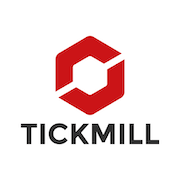 | 4.58 /5 Read Review | Yes | 49464 |     | Excellent | Yes | Yes | Yes | Yes | Yes | 62 | |
 | 4.53 /5 Read Review | Yes | 46632 |     | Excellent | Yes | Yes | Yes | Yes | Yes | 53 | |
4.43 /5 Read Review | Yes | 49835 |     | Excellent | Yes | Yes | Yes | Yes | Yes | 46 | ||
 | 4.40 /5 Read Review | Yes | 50926 |     | Excellent | Yes | No | Yes | No | Yes | 70 | |
4.39 /5 Read Review | Yes | 45052 |     | Excellent | Yes | No | Yes | No | Yes | 70 | ||
4.37 /5 Read Review | Yes |    | Excellent | Yes | No | Yes | No | Yes | 52 | |||
 | 3.64 /5 Read Review | Yes | 45276 |     | Standard | No | Yes | Yes | Yes | Yes | 83 |
Are demo accounts as accurate as real trading?
You will be trading the real market only with pretend money so they are accurate. Remember, however, that you can never replicate the real emotions you will experience when trading your own money. So, while useful for practicing different approaches and strategies, traders are likely to behave far less cautiously on demo accounts than on a real, live account.
Why use a forex demo account?
A demo account allows you to learn all about forex trading without risking your own money. This is vital given that forex markets are highly complex and volatile and subject to seemingly random movements. Diving straight into trading your own money without any or very little experience is a recipe for financial disaster. Using a demo account helps you to build up your knowledge and this may take weeks and even months in a risk-free manner. At the very basic level, it can provide guidance on whether you can actually make money trading Forex, and whether it’s something you like doing. It can also, determine how much time, effort and money you want to devote to trading and influence your choice of strategies etc.
What is the difference between live and demo accounts?
There is no distinction other than the very important one that in a demo account you are trading without risk since no money is involved.
How long should I trade on a platform before depositing real money?
You should stay on the demo account until you completely understand the basics of forex trading and feel comfortable risking your own money. The answer will vary from individual to individual and will depend on your aptitude and how much effort and time you put into trading on the demo account. Never feel that you need to rush into live trading, the more time you spend practicing on a demo account the more likely you are to be successful using real money.
When you do start trading for real, begin with a small amount such as US$250 to US$500; any less limits the number of trades you can make. You need to be prepared to lose some or all of this money. Also, trade cautiously. You don’t want to risk more than 1% to 2% of your capital on each trade. That will allow you to make 50 to 100 trades, by which time you will be well placed to know if you can make a profit trading forex.
Which trading platforms can I use with my demo account?
The type of trading platform you use will depend on which broker you open a demo account with. The most popular trading platforms are MT4, MT5 and cTrader. They can be used with multiple brokers, and all will prepare you for any number of potential markets. You may be unable to trade stocks with some demo accounts, so if you want to switch brokers in the future – or use multiple brokers – and want to trade stocks, be careful which platform you start with.
Many brokers also off their own speciality trading platforms but these tend to be devised for experienced traders with particular requirements. For example, there are speciality platforms aimed at technical and algorithmic traders (who use computer codes and software to open and close trades according to set rules such as points of price movement in an underlying market), and automated trading.
Some brokers will offer more than one choice of platform. Choosing a broker with a wide platform choice would allow for the trader to try different trading platforms on the demo account. Here are the FSCA regulated brokers with a wide platform choice. They are ordered by overall score, showing the broker with the highest overall score at the top.
Broker | Broker Score | Min. Deposit | All Platforms | FSP # | All Regulators | Unlimited Demo | Android App | iOS App | Support Hours | Compare |
|---|---|---|---|---|---|---|---|---|---|---|
 | 4.69 /5 Read Review | USD 0 | MT4, L2 Dealer, ProRealTime | 41393 |     | Yes | Yes | Yes | 24/5 | |
4.68 /5 Read Review | ZAR 1500 | MT4, MT5, markets.com | 46860 |     | Yes | Yes | Yes | 24/5 | ||
 | 4.59 /5 Read Review | ZAR 1900 | MT4, MT5, Avatrade Social, AvaOptions | 45984 |     | No | Yes | Yes | 24/5 | |
 | 4.58 /5 Read Review | USD 100 | MT4, MT5 | 49464 |     | Yes | Yes | Yes | 24/5 | |
 | 4.53 /5 Read Review | ZAR 0 | MT4, MT5, HFM Trading App | 46632 |     | Yes | No | No | 24/5 | |
 | 4.45 /5 Read Review | USD 5 | MT4, MT5 | 49977 |     | No | Yes | Yes | 24/5 | |
4.43 /5 Read Review | USD 0 | MT4, MT5, ThinkTrader | 49835 |     | Yes | Yes | Yes | 24/6 | ||
 | 4.40 /5 Read Review | AUD 100 | MT4, MT5, cTrader, IRESS | 50926 |     | Yes | Yes | Yes | 24/5 | |
4.39 /5 Read Review | USD 100 | MT4, MT5, cTrader, FxProEdge | 45052 |     | Yes | Yes | Yes | 24/7 | ||
 | 4.38 /5 Read Review | USD 50 | MT4, TradeStation | 46534 |     | No | Yes | Yes | 24/5 | |
4.37 /5 Read Review | ZAR 150 | MT4, MT5, BDSwiss WebTrader |     | No | Yes | Yes | 24/5 | |||
4.37 /5 Read Review | USD 25 | MT4, MT5, OctaTrader |    | Yes | Yes | Yes | 24/5 | |||
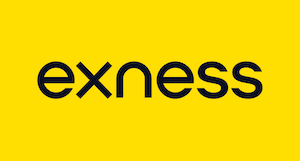 | 4.32 /5 Read Review | USD 3 | MT4, MT5, Exness Terminal | 51024 |     | No | Yes | Yes | 24/7 | |
4.28 /5 Read Review | ZAR 500 | MT4, MT5 |     | No | No | No | Business Hours | |||
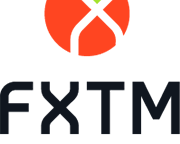 | 4.27 /5 Read Review | USD 10 | MT4, MT5 | 46614 |     | No | No | No | 24/7 | |
4.05 /5 Read Review | USD 5 | MT4, Cloud Trade | 49846 |     | No | Yes | Yes | 24/5 |
Can I trade on my mobile?
You can download demo accounts on a laptop, desktop, and portable devices such as iPads and mobile phones. The main thing is to practise as often as you can, wherever you can.
Do Demo Accounts have Customer Support?
All brokers will have customer service open on weekdays, but the better brokers extend their customer service into the evenings and weekends. We include the customer service hours in our reviews and some of the tables on this page. Contact methods can vary from poor customer service ticketing systems (eToro) to direct email addresses and local toll-free phone numbers. Live chat and other messenger services are also available with some brokers, but responsiveness can vary depending on the time of day.
Forex Risk Disclaimer
Trading Forex and CFDs is not suitable for all investors as it carries a high degree of risk to your capital: 75-90% of retail investors lose money trading these products. Forex and CFD transactions involve high risk due to the following factors: Leverage, market volatility, slippage arising from a lack of liquidity, inadequate trading knowledge or experience, and a lack of regulatory protection. Traders should not deposit any money that is not considered disposable income. Regardless of how much research you have done or how confident you are in your trade, there is always a substantial risk of loss. (Learn more about these risks from the UK’s regulator, the FCA, or the Australian regulator, ASIC).
Our Rating & Review Methodology
Our Broker Awards and Forex Rankings Report and Directory of CFD Brokers to Avoid are the result of extensive research on over 180 Forex brokers. These resources help traders find the best Forex brokers – and steer them away from the worst ones. These resources have been compiled using over 200 data points on each broker and over 3000 hours of research. Our team conducts all research independently: Testing brokers, gathering information from broker representatives and sifting through legal documents. Learn more about how we rank brokers.
Editorial Team

Chris Cammack
Head of Content
Chris joined the company in 2019 after ten years experience in research, editorial and design for political and financial publications. His background has given him a deep knowledge of international financial markets and the geopolitics that affects them. Chris has a keen eye for editing and a voracious appetite for financial and political current affairs. He ensures that our content across all sites meets the standards of quality and transparency that our readers expect.

Alison Heyerdahl
Senior Financial Writer
Alison joined the team as a writer in 2021. She has a medical degree with a focus on physiotherapy and a bachelor’s in psychology. However, her interest in forex trading and her love for writing led her to switch careers, and she now has over eight years experience in research and content development. She has tested and reviewed 100+ brokers and has a great understanding of the Forex trading world.

Ida Hermansen
Financial Writer
Ida joined our team as a financial writer in 2023. She has a degree in Digital Marketing and a background in content writing and SEO. In addition to her marketing and writing skills, Ida also has an interest in cryptocurrencies and blockchain networks. Her interest in crypto trading led to a wider fascination with Forex technical analysis and price movement. She continues to develop her skills and knowledge in Forex trading and keeps a close eye on which Forex brokers offer the best trading environments for new traders.
Stay updated
This form has double opt in enabled. You will need to confirm your email address before being added to the list.



























